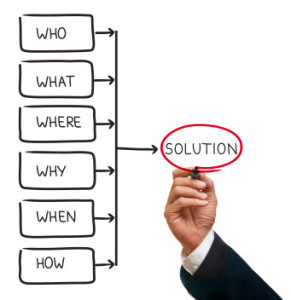 Business analysis is the practice of evaluating an organization’s operations and recommending value added changes, but what a business analyst does specifically depends on their job function. Nearly all companies are facing such fierce competition in the global market that skilled business analysts are employed by them to identify opportunities to gain efficiencies that could lead to competitive advantages. Business analysis techniques are also used to create objectives, goals and requirements for organizations at the enterprise and project levels. Here are some of the roles and job descriptions of business analysts whose skills are needed by businesses across all industries.
Business analysis is the practice of evaluating an organization’s operations and recommending value added changes, but what a business analyst does specifically depends on their job function. Nearly all companies are facing such fierce competition in the global market that skilled business analysts are employed by them to identify opportunities to gain efficiencies that could lead to competitive advantages. Business analysis techniques are also used to create objectives, goals and requirements for organizations at the enterprise and project levels. Here are some of the roles and job descriptions of business analysts whose skills are needed by businesses across all industries.
Business Requirements Analyst
Business requirements analysts work as members of project teams or as consultants to senior managers who want to evaluate the strategic business requirements of their organizations. Analysts who work as project team members assist user representatives and project managers to define project purposes and expected outcomes. After obtaining agreement on these types of high level business requirements, business analysts gather more detailed requirements from stakeholders like the product functions expected by its end users, the operational task sequence that must be completed during the project and any of the project’s technical specifications. Business requirements analysts who work in advisory roles in business strategic planning activities document current operations, suggest material or process changes and generate business case analysis reports to persuade senior leaders to adopt their recommended changes. These business analysts use their familiarity with the Business Analysis Body of Knowledge, interpersonal skills and experience using business process models and use cases to help organizational leaders and project managers deliver consistent value to their clients, according to the International Institute of Business Analysis.
Agile Business Analyst
Agile methods can be used to help manage a variety of projects, but they are most frequently used to bring software projects to successful completion. Agile methods acknowledge the frequent requirements changes that are so characteristic of software projects. While agile analysts start with a baseline set of business requirements, the agile process allows them to continue to explore the needs of the end user so that requirements become refined iteratively. Business analysts also make sure that the newly refined requirements align with the baseline objectives of the project. The agile process includes frequent reviews of each iteration with end user representatives to ensure that the project remains on track.
Functional Business Analyst
A functional business analyst possesses expertise in one or more technology product. These products are normally commercial off the shelf items that businesses want to incorporate into their enterprises. These businesses employ functional business analysts to help them understand the unique benefits of the technology as they pertain to organizational needs. Functional analysts also help these companies to integrate technology products with other sub-systems and components within organizations’ architectures with minimal disruptions to operations.
Related Resource: Become a Data Network Security Administrator
Conclusion
Business analysis is a systematic approach to change management that usually requires practitioners to have in depth knowledge of an organization’s business operations as well as foundational business principles. In most cases, they also must have varying levels of familiarity with technical systems. The business analyst roles that are described above are just some of the examples of what a business analyst does, and these business professionals can confirm their competence by gaining certifications through organizations like the International Institute of Business Analysis or the Project Management Institute.
 Follow
Follow